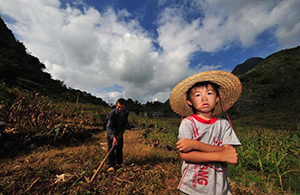Rule of law also requires disciplined law enforcers
(China Daily) Updated: 2016-06-13 07:29
 |
|
A technician carries out a blood test for HIV virus at Jinan AIDS lab in East China's Shandong province on Nov 30, 2015. [Photo/IC] |
We do not know how the whole drama would have ended had the victims not secretly recorded that video clip of their tense argument with the abusive police officer. Or that clip had not become an internet sensation over the past few days.
That the two innocent women in Shenzhen, South China's Guangdong province, are safe and well, even received an apology from local police authorities, and that the officer involved has been suspended, may be a reason to celebrate.
That sounds like the end of another case of police misconduct. But what happened on May 21 to the two young residents of Shenzhen must not end with that simple apology and suspension. Indeed, there are deeper, broader questions to be deliberated.
The two women were forced into a police vehicle and taken to a police station for interrogation. The only apparent wrong they had done when they were stopped on the street and asked to produce their identification cards was their failure to do so. Their request for the police officer to produce his police ID, which he should have, confirms their awareness of law.
Feeling challenged, the officer threatened to cuff them and throw them behind bars "with thieves, AIDS patients and robbers". His evident discrimination against AIDS victims aside, he displayed a dangerous belief that he could do whatever he wanted to innocent citizens, just because he was acting in the name of law enforcement.
Existing laws and government decrees have already given law enforcement a great deal of latitude for defining citizens' obligations to "cooperate", including producing personal IDs. An essential detail downplayed in the Shenzhen incident was that the officer had no reason under current rules to force the two victims to prove to him who they were.
This and similar scandals have caused worries about the latitude given to those in charge of law enforcement. Unless such people are well disciplined, they could eventually end up being a threat to public security.
Before such people know the boundaries of their powers and learn to respect civil liberties, what happened to the two women the other day could happen to others tomorrow.

I’ve lived in China for quite a considerable time including my graduate school years, travelled and worked in a few cities and still choose my destination taking into consideration the density of smog or PM2.5 particulate matter in the region.











